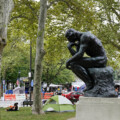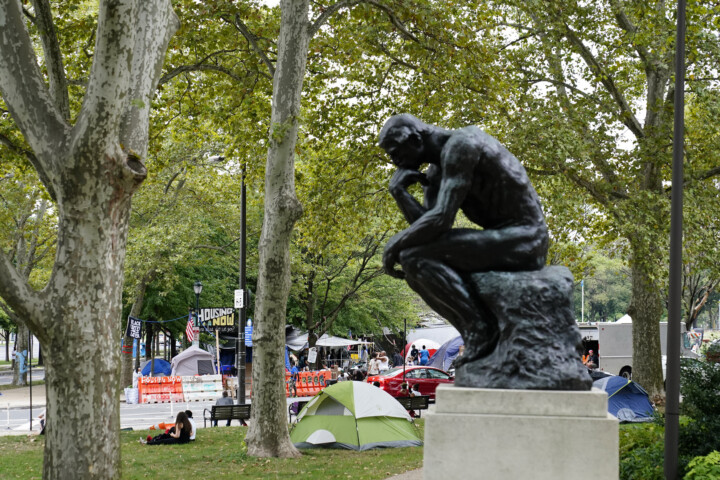
This year marks the 60th anniversary of Canadian philosopher George Grant’s Lament for a Nation: The Defeat of Canadian Nationalism, a seminal work that reshaped Canadian political discourse. Published in 1965, Grant’s critique of American cultural dominance and technological modernity challenged Canadians to reconsider their national sovereignty and identity. To mark the occasion, this summer, The Hub will feature a series of essays from big thinkers exploring the book’s enduring legacy and how its insights remain vital to understanding Canada and its relationship with the United States today.
At my old job, I was relentlessly made fun of for having a portrait of the Queen at my desk. Every Canadian is entitled to a free photo of their country’s sovereign; the government used to mail it to you if you asked nicely. Because I had mine prominently and proudly displayed, I was soon assigned the label of the old-fashioned Anglophilic eccentric. The teasing echoed a lament George Grant made 60 years ago.
It was then that the sun set on English Canada. Today, it is only a faint memory.
A break from Britain
From the late 18th to the mid-20th century, Canada had a distinctly British identity. The United Empire Loyalists who left their livelihoods behind and trudged north felt a deep devotion to a British heritage they wanted to preserve, as well as a disdain for those who wanted to break away and form a rebellious republic.
“A British subject I was born—a British subject I will die,” Sir John A. Macdonald trumpeted, kicking off the 1891 election and responding to proposals for closer ties with the U.S. He would die four months later. Even the man who made this an independent country understood the significance of its English roots; roots that included Loyalists, as well as immigrants from the United Kingdom.
Roast beef dinners were devoured on Sundays. Grip magazine was flipped through in cafes. The Orange Order dominated local politics, for good and for ill. Many young Canadians attended Boy Scouts and debate clubs, read Dickens, Austen, and Shakespeare in school, and played rugby on the weekends.
But as Grant describes, after English Canadians helped build the nation, starting in the 1960s, Liberal governments began dismantling the attachments to the British motherland, piece by piece.









